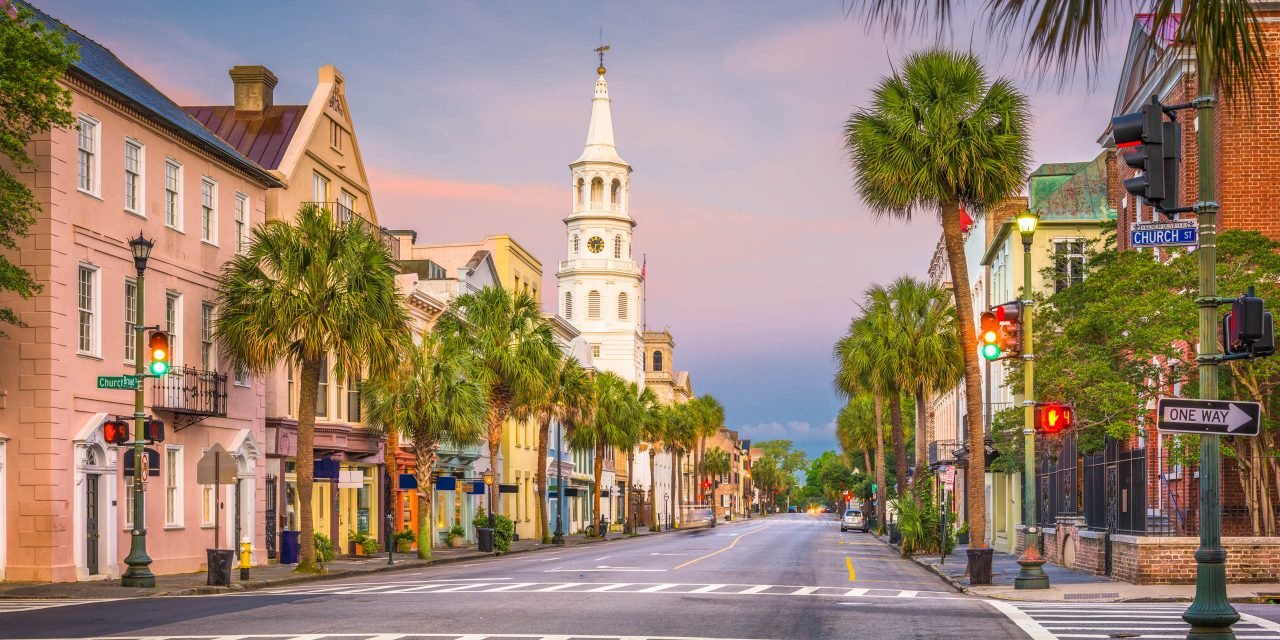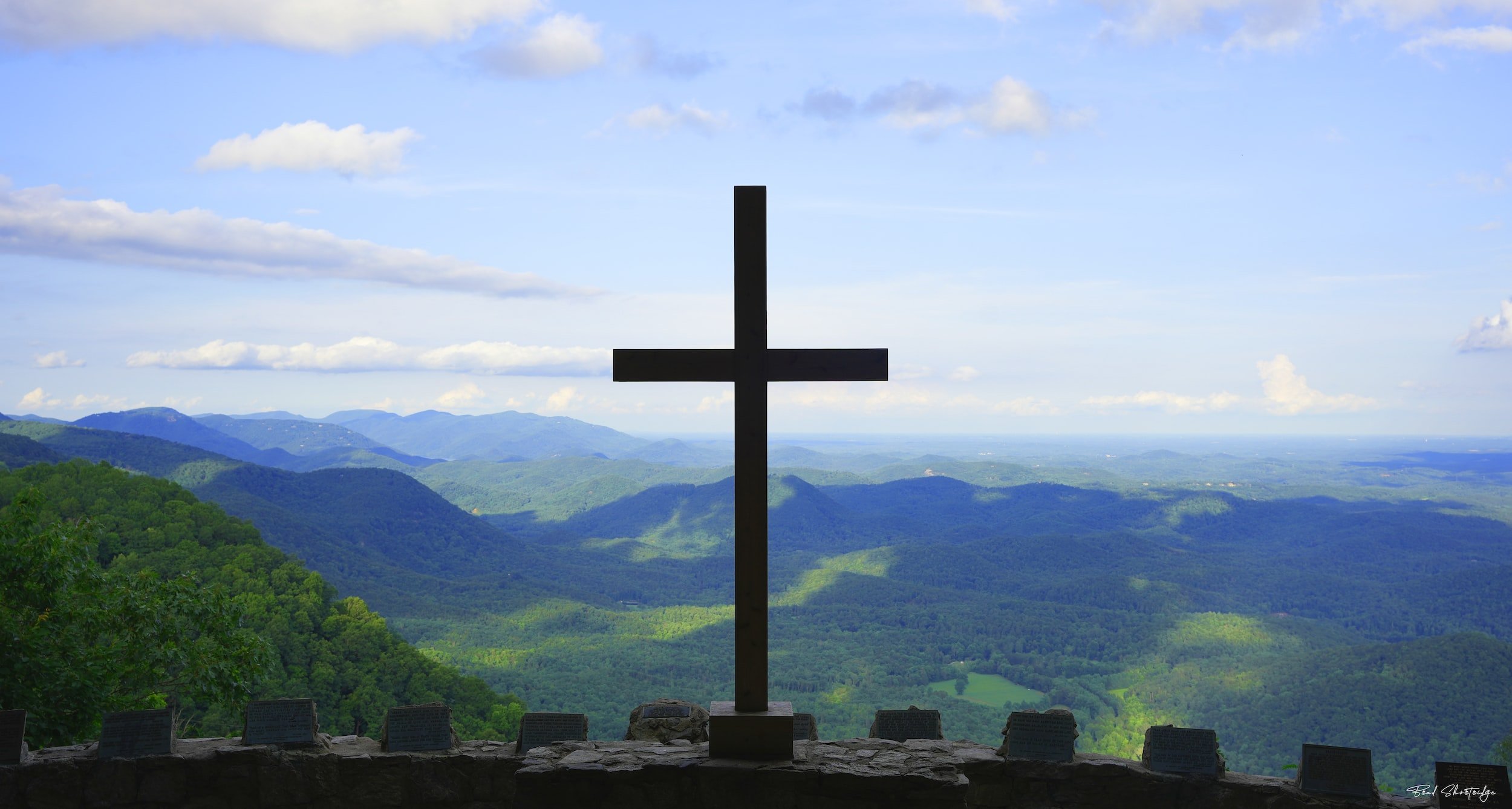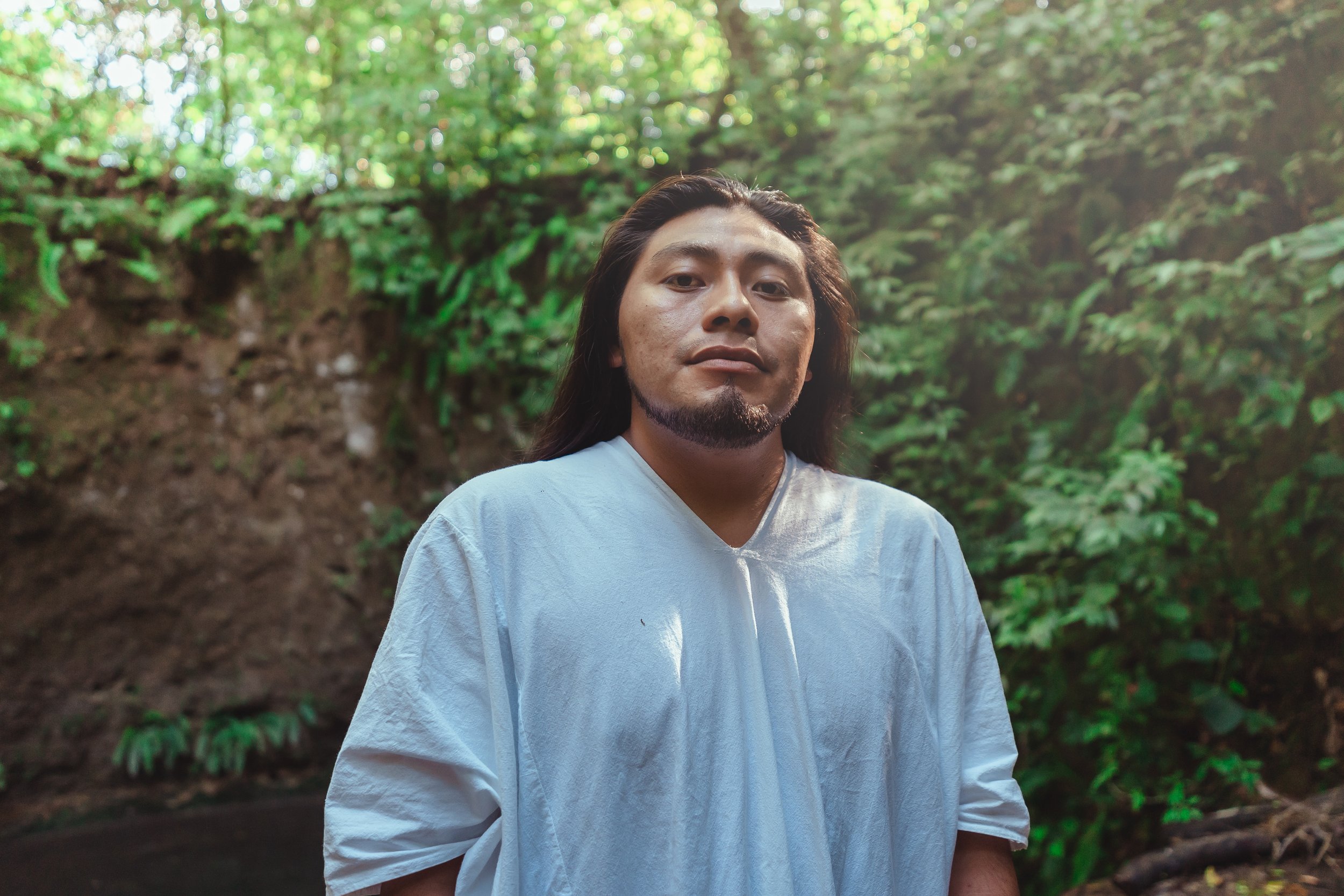
South Carolina
Established in 1663
September 1, 2022
Godly Roots for South Carolina
The South Carolina colony, founded in 1633 by eight English nobles with a Royal Charter from King Charles II, was one of the original 13 colonies of pre-Revolutionary America. South Carolina was named in honor of King Charles I of England, who first formed the English colony, with Carolus being Latin for "Charles." It was classified as part of the Southern Colonies and existed as an English settlement from 1663 until 1776.
The Church of England (known later as the Protestant Episcopal Church) was established as the official state-supported church of South Carolina in 1706, with responsibility for recording births, christenings, marriages, and burials. Between 1706 and 1778, twenty-five parishes were established, including two for the Huguenots, who were allowed to use a French version of the Book of Common Prayer. Quakers settled in South Carolina early; the first group was joined by emigrants from Ireland in the 1750s and by Quakers from Pennsylvania, North Carolina, New Jersey, New York, and Virginia after 1760.
The first dissenters from the Church of England were the Presbyterians. In 1680, they created the Independent or Circular Church in Charleston. The Huguenots or the French Protestants arrived in the colony in 1680, followed by the Swiss and German Lutherans in 1730. French Huguenots began to settle permanently in South Carolina in 1685, when land grants were issued along the shoreline. Presbyterians established their denomination in South Carolina during the early eighteenth century and later became associated with the Reformed Presbyterian Church. Lutherans also established themselves in South Carolina during the eighteenth century with the arrival of German and Swiss settlers. The Baptist Church is contemporary South Carolina's largest religious group, despite the fact that it was not established there until 1783. Methodists arrived in South Carolina about the same time as the Baptists (1783).
The Baptists, Quakers and Anabaptists were among the pioneering settlers in South Carolina. The Baptists were already established in the colony by 1670, the Methodists by the 1770s, and Jewish worshipers by 1749.
The Carolina slave trade, which included both trading and direct raids by colonists, was the largest among the British colonies in North America. Between 1670 and 1715, between 24,000 and 51,000 captive Native Americans were exported from South Carolina — more than the number of Africans imported to the colonies of the future United States during the same period. Additional enslaved Native Americans were exported from South Carolina to other U.S. colonies. The historian Alan Gallay says, "the trade in Indian slaves was at the center of the English empire's development in the American South. The trade in Indian slaves was the most important factor affecting the South in the period 1670 to 1715".
In the 1670s, English planters from Barbados established themselves near what is now Charleston. Settlers from all over Europe built rice plantations in the South Carolina Lowcountry, east of the Atlantic Seaboard fall line. Plantation labor was done by African slaves who formed the majority of the population by 1720.
Meanwhile, Upstate South Carolina, west of the Fall Line, was settled by small farmers and traders, who displaced Native American tribes westward. Colonists overthrew the proprietors' rule, seeking more direct representation. In 1712, the former Province of Carolina split in to North and South Carolina. In 1719, South Carolina was officially made a royal colony.
South Carolina prospered from the fertility of the lowcountry and the harbors, such as at Charleston. It allowed religious toleration, encouraging settlement, and trade in deerskin, lumber, and beef thrived. Rice cultivation was developed on a large scale on the back of slave labor.
By the second half of the 1700s, South Carolina was one of the richest of the Thirteen Colonies.
During the American Revolutionary War, South Carolina was the site of major activity among the American colonies, with more than 200 battles and skirmishes fought within the state.
South Carolina became the eighth state to ratify the U.S. Constitution on May 23, 1788. A slave state, it was the first state to vote in favor of secession from the Union on December 20, 1860. After the American Civil War, it was readmitted into the United States on July 9, 1868.
According to the Association of Religion Data Archives (ARDA), in 2010, the largest religion is Christianity, of which the largest denominations were the Southern Baptist Convention with 913,763 adherents, the United Methodist Church with 274,111 adherents, and the Roman Catholic Church with 181,743 adherents. Fourth-largest is the African Methodist Episcopal Church with 564 congregations and 121,000 members and fifth-largest is the Presbyterian Church (USA) with 320 congregations and almost 100,000 members.
South Carolina
Established in 1663
in 1629, King of England Charles I established the Province of Carolina, an area covering what is now South and North Carolina, Georgia and Tennessee. In 1663, Charles II granted the land to eight Lords Proprietors in return for their financial and political assistance in restoring him to the throne in 1660. Anthony Ashley Cooper, one of the Lord Proprietors, planned the Grand Model for the Province of Carolina and wrote the Fundamental Constitutions of Carolina, which laid the basis for the future colony. His utopia was inspired by John Locke, an English philosopher and physician, widely regarded as one of the most influential of Enlightenment thinkers and commonly known as the "Father of Liberalism".
The Carolina slave trade, which included both trading and direct raids by colonists: was the largest among the British colonies in North America. Between 1670 and 1715, between 24,000 and 51,000 captive Native Americans were exported from South Carolina — more than the number of Africans imported to the colonies of the future United States during the same period. Additional enslaved Native Americans were exported from South Carolina to other U.S. colonies. The historian Alan Gallay says, "the trade in Indian slaves was at the center of the English empire's development in the American South. The trade in Indian slaves was the most important factor affecting the South in the period 1670 to 1715".
Settled by the English in 1670, South Carolina had a wealthy, aristocratic, and influential colonial society based on a plantation agriculture that relied on a labour force of Black slaves. By 1730 people of African ancestry had come to represent some two-thirds of the colony’s total population. The plantation system spread from the coastal lowlands into the rolling inland region in the early 19th century, and the new state became part of the Cotton Belt that stretched across the South. The American Civil War (1861–65) shattered South Carolina’s economy and influence, and for a century thereafter the state suffered economic, social, and political turmoil. The mid-20th century brought major changes, however, as South Carolina’s economy industrialized, its metropolitan areas grew, and the civil rights movement swept across the state.
Also during the 1670s, English planters from Barbados established themselves near what is now Charleston. Settlers from all over Europe built rice plantations in the South Carolina Lowcountry, east of the Atlantic Seaboard fall line. Plantation labor was done by African slaves who formed the majority of the population by 1720. Another cash crop was the indigo plant, a plant source of blue dye, developed by Eliza Lucas.
Meanwhile, Upstate South Carolina, west of the Fall Line, was settled by small farmers and traders, who displaced Native American tribes westward. Colonists overthrew the proprietors' rule, seeking more direct representation. In 1712, the former Province of Carolina split in to North and South Carolina. In 1719, South Carolina was officially made a royal colony.
South Carolina prospered from the fertility of the lowcountry and the harbors, such as at Charleston. It allowed religious toleration, encouraging settlement, and trade in deerskin, lumber, and beef thrived. Rice cultivation was developed on a large scale on the back of slave labor.
By the second half of the 1700s, South Carolina was one of the richest of the Thirteen Colonies.
Source:
It’s Time..!!
God is in charge of all nations
If His people, called by His name, will humble themselves and pray and seek His face, and turn from their wicked ways, He will hear from heaven and forgive their sins and heal their land.
2 Chronicles 7:14
If we renounce sins and turn towards His purity He may relent from a judgment we deserve. He will not forsake His inheritance.
Godly roots were planted many generations ago in what is now the United States, watered by blood, prayers, fasting and repentance. Hundreds of “Days of Humiliation” prompted the Lord to continue to pour out His blessings to plant and send forth the Liberty Jesus Christ gave all humans.
But the nation has significantly turned from God. We do not “remember His power” Psalm 78:42. We have behaved as if we can govern out of our own strength, forgetting that “Unless the Lord builds the house, they labor in vain who build it.” Psalm 127:1.
In God's perfect timing, the Liberty given by Jesus Christ through His Blood, and confirmed in His Word, was planted in the 13 colonies then ruled by Great Britain. Men and women filled with His Holy Spirit discerned a unique call on their lives to bring forth that Liberty as a God-given gift for all men everywhere.
Having experienced God’s Liberty through Christ and His Holy Spirit these passionate founders could no longer stand the ongoing tyranny of a monarch. Patrick Henry, bold for Christ in public, said it best: “Give me Liberty or give me death.”
John Adams’ boldness for Christ came from his love of the Bible and his understanding of spiritual warfare. In 1777, a year after the Declaration of Independence, a gathering of the founders was held again in Philadelphia at great risk. Philadelphia was about to be invaded; Washington’s troops were losing battles; the far superior British troops seemed invincible. One local delegate asked John Adams: “Sir, how can we possibly defeat the British given their skill and their size?” Adams replied
“We will defeat them----- if we fear God and repent of our sins.”
As a witness to His impact in their lives, and as a way to open the heavens to bring about the miracles they needed, many honored Jesus publicly. “We have no King but Jesus” was a common statement.
Thirteen days of repentance are now proposed whereby today's citizens in those thirteen colonies on a given day can discover the blessings God planted in their colony, confess how far current laws and pracntices deviate from those Godly roots, and then repent, turning personally and as a State-wide community for those sins, calling on His Forgiveness and Mercy.
Prayer intercessors from other States and Nations will be invited to join on each day of repentance.
As to each colony the question is : What did God plant?
And then, how have we deviated from those Godly roots?
And will you then confess any sin personally, for your family, for your State?
Finally, all will be encouraged humbly to repent, to replace worldly, wicked ways with His path, by His Word, to His purity.
God willing, the One Who planted Liberty in each colony, and Who has a purpose for the citizens in that current State, will hear from heaven, forgive sin, and heal the land.
Restoring Godly Roots in our 13 Colonies
Godly roots were planted in the original 13 colonies in the USA. A project to restore them using God's solution in the Bible begins in the first colony, Virginia, on February 1.
On February 1, 2022 a day of repentance will take place in Virginia. Individuals in Virginia, and throughout the USA, and in 47 nations, will take time, in prayer, fasting and humble repentance that day, confessing our personal and national sins, and acknowledging our firm dependence upon the Living God.
God gives His solution to heal a land in 2 Chronicles 7:14: " if My people who are called by My name will humble themselves, and pray and seek My face, and turn from their wicked ways, then I will hear from heaven, and will forgive their sin and heal their land. "
Twelve additional days of repentance, focusing on each colony, will then take place on the first of each month, ending with the last established colony, Georgia, on February 1, 2023.
The next day of repentance will focus on South Carolina on September 1, 2022.
Resources to hold a repentance service in a church or small group are available on the website: www.globalrepent.com
Building on a national and International Day of Repentance held on December 1, 2021 which focused on abortion, joined by 70 Christian ministries, the project seeks to continue this momentum for national repentance. According to Christian historians, This Godly solution to heal a land has been used over 800 times in our history; it's time to use it again.
A two hour zoom call will be held on September 1 @ 12noon EST. Please email us at the email below for information. Members of Congress, and local politicians have been invited to participate. But in keeping with scripture, the main emphasis is on individual repentance, one on One, with Him that day.
Please note: As we continue our "march through the colonies," focusing on acts of repentance for each one throughout this year and into the next, we welcome your own thoughts and research for each one, identifying needs for repentance in each colony. Thank you for contacting us at the address below.
Information:
Pastor Jeff Daly
National Day of Repentance
www.globalrepent.com
pastorjeff@repentday.com
(707) 350-0659
Prayer Points
Pray that many will heed the move of the Holy Spirit to confess that:
God's Spirit of LIFE will prevail in its citizens and its laws;
God's Spirit of TRUTH will prevail in its citizens and its laws;
The Kingdom of God will be preached and all will press into it; (Luk 16:16)
The Living God will be feared; idolatry will be exposed and rejected;
God’s Plan for North Carolina will go forward as a Light to other States and Nations
Cruelties and Killings that Muted / Blocked
The Godly Roots
From the viewpoint of the Native Americans the following eventually took place:
Innocent bloodshed upon the land
Stealing of land
Breaking of covenants with the tribes
Removing the ancient landmarks
Slavery
Doing it all in the Name of God !
Oppression
Political agendas to control, build and possess the wealth of the land while keeping it from others
Racism
Establishing free masonry in the government and economic systems
Sacrificing babies to the spirit of death
Establishing idols in the land and worshiping them
Allowing foreign gods, false religions into our land
Selfishness, humanism, individualism
One on One---a basic approach to repentance
Spend time alone with the Lord. He loves you. He created you. He knew you in your mother's womb and even at the beginning of His creation.
Thanks to the work of His Son, Jesus/ Yeshua, all the sins of mankind have been covered by Jesus' blood and His victory.
Now the invitation is to come into His Kingdom through repentance, changing your thinking, dying to your old ways, and believing in Jesus, the risen Christ, as the Lord of your life.
His Holy Spirit then will be in you, to give you a new life purpose and eternal life with Him.
Now that you're in His Kingdom, He calls each of us to cleanse, to purify, to get ready as His Bride for His soon return as our Bridegroom. There's no guilt; no condemnation; He loves you and wants all of us to be Overcomers of our old sin patterns, to be able to have the privilege " to sit beside Me on My throne, as I also overcame and sat down beside My Father on His throne." (Revelation 3:19-21).
Steps to repent, one on One:
Come in to the Kingdom through repentance---Matthew 4:17
Now that you're in the Kingdom, you have the Holy Spirit
Invite the Risen Christ to dine with you Revelation 3:20
Praise Him, honor the King of kings
Ask Him which old sin pattern He suggests you look at
Receive His Wisdom and consider confessing that sin
Confess the sin
Receive His forgiveness
Consider removing that sin pattern forever through your free will decision to repent, turning to Him instead
Repent
Replace that sin pattern with one of His Words as your new direction
Experience His Joy which will now never leave you as your new strength--and witness to others; you're bearing Holy Spirit fruit worthy of His gift of repentance!
*** A M E N ***

Below is the Recording of our Zoom Call on Thursday, September 1st, 2022… @ 12noon -2pm EST
JOIN US FOR OUR NEXT GLOBAL DAY OF REPENTANCE





